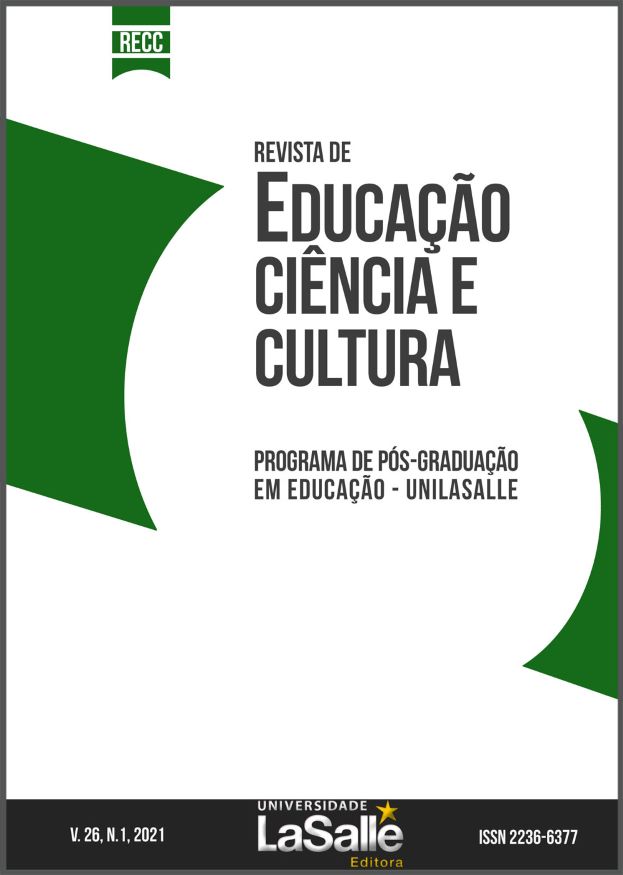Possiblidades para a presença da cultura caiçara em escolas do litoral paulista
DOI:
https://doi.org/10.18316/recc.v26i1.7592Palavras-chave:
BNCC, Currículo, Projeto Político-Pedagógico, Cultura Caiçara, Escolas do Litoral Paulista.Resumo
Neste artigo, desenvolvemos um estudo sobre a inclusão de temáticas relacionadas à cultura caiçara no Projeto Político-Pedagógico de escolas do litoral paulista. Embora haja um amplo espectro de pesquisas acadêmicas, observamos que há poucos materiais voltados ao universo escolar que versam sobre o sujeito e a cultura caiçara. A discrepância entre produção didática e produção acadêmica, somada à importância da valorização da diversidade étnico-cultural presente na Base Nacional Comum Curricular (BNCC) nos levou a desenvolver esta pesquisa. Portanto, nosso objetivo é traçar considerações a respeito da escassa presença de temáticas relacionadas à cultura caiçara em planos pedagógicos e matrizes curriculares, contrariando a legislação atual no que se refere à relação escola-comunidade. Para tanto, desenvolvemos um trabalho de abordagem qualitativa, centrado em estudo bibliográfico. Serviram de base para as reflexões, os estudos sobre cultura caiçara realizados por Adams (2000), Diegues (2004), Marcílio (2006) e Sanches (2004) e os trabalhos de Veiga (2001), Santiago (2001), Moreira e Candau (2007), Candido e Gentilini (2017), e Ferreira (2015) a respeito do Projeto Político-Pedagógico, do Currículo e da Base Nacional Curricular (BNCC). As reflexões levantadas buscam, sobretudo, mostrar os principais entraves para a não difusão da cultura caiçara no âmbito escolar. A consciência de tais barreiras pode gerar, como resultado, uma postura mais inclusiva por parte da comunidade escolar em relação à preservação da memória cultural e da identidade social dos sujeitos que integram as comunidades locais.
Downloads
Publicado
Edição
Seção
Licença
Autores que submetem seus manuscritos para serem publicados nesta revista concordam com os seguintes termos:
Autores mantém os direitos autorais e concedem à revista o direito de primeira publicação, com o trabalho simultaneamente licenciado sob a Licença Creative Commons Attribution que permite o compartilhamento do trabalho com reconhecimento da autoria e publicação inicial nesta revista.
- Em virtude dos artigos aparecerem nesta revista de acesso público, os artigos são de uso gratuito, com atribuições próprias, em aplicações educacionais e não-comerciais.
O Periódico Revista de Educação, Ciência e Cultura em http://www.revistas.unilasalle.edu.br/index.php/Educacao foi licenciada com uma Licença Creative Commons - Atribuição - Uso Não Comercial 3.0 Não Adaptada.


